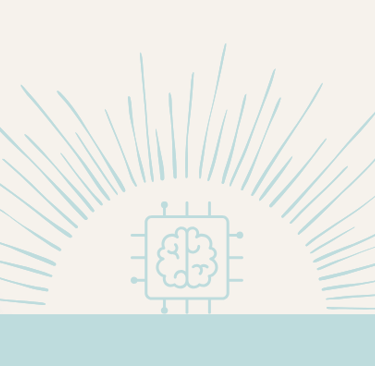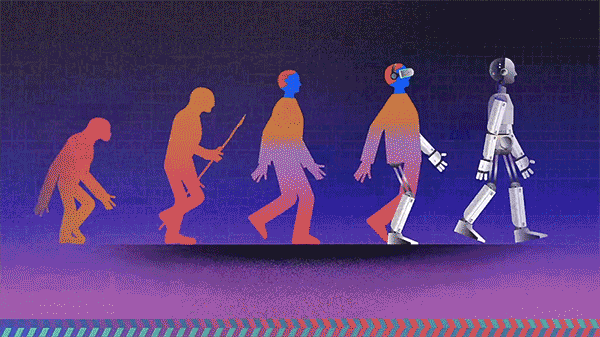

What Stays, What Changes?
For centuries, wellness was rooted in rituals—herbs brewed into tonics, meditation practiced at sunrise, energy healing passed down through generations.
Now, it is being measured in real time.
Your smartwatch tracks your sleep cycles, your AI-driven health app suggests meal plans, and personalized supplements promise to balance your microbiome. But is this shift a true evolution, or are we just trading one wellness trend for another?
As I started diving into this intersection, I noticed something:
💡 The future of wellness isn’t a battle between ancient traditions and modern technology—it’s a conversation between the two.
Once upon a time, wellness and health were simple—you followed the traditions of your ancestors, trusted herbal remedies, and let intuition guide your health decisions.
Today, wellness and health are an ever-expanding marketplace, where biohacking gadgets, AI health trackers, and DNA-based nutrition plans promise better results than what nature ever could.
What if the future of wellness isn’t ancient vs. modern, but integrated?
Let’s explore how traditional healing and cutting-edge health science are merging to create a new era of well-being.
💡 Things to take with you
Health is evolving from ancient rituals like herbal tonics and meditation to real-time AI tracking and biohacking
The wellness industry now offers DNA-based nutrition plans, AI-driven health apps, and personalized supplements
Holistic medicine in the U.S. merges acupuncture, massage therapy, and herbal supplements with Western treatments
AI and network pharmacology are validating the effectiveness of traditional herbal medicine through advanced research
In the United States, healthcare providers are blending modern medicine with traditional practices such as acupuncture, massage therapy, and herbal supplements:
"Integrative Medicine is a patient-centered approach." – University of Minnesota
This holistic approach addresses not only physical symptoms but also emotional and spiritual well-being, offering a more comprehensive path to health.
Therefore, the integration of artificial intelligence (AI) into traditional and holistic medicine is forging a new path in healthcare, because today and in the near future AI will continue playing a pivotal role in bridging traditional medicine with modern science.
1. AI-Enhanced Traditional Chinese Medicine (TCM)
In TCM, AI algorithms analyze vast datasets of clinical records and literature to identify effective herbal combinations and optimal dosages for specific ailments. This data-driven approach enhances the precision and personalization of TCM treatments.
2. AI-Assisted Tongue Diagnosis
Inspired by traditional diagnostic methods, scientists have created AI algorithms capable of analyzing tongue images to detect diseases with high accuracy.
A study demonstrated that such an AI system could identify conditions like diabetes and cancer by recognizing specific color patterns on the tongue, offering a non-invasive diagnostic tool that bridges ancient wisdom with modern technology.
3. Virtual AI Physiotherapists
In the realm of physical therapy, AI-driven virtual assistants are being developed to provide personalized rehabilitation programs.
💡 For example, an AI physiotherapist named "Kirsty" offers tailored exercises and pain management techniques to patients, reducing the need for in-person visits and making therapy more accessible.
4. AI in Ayurvedic Medicine
Traditional Ayurvedic diagnosis relies on assessing an individual's constitution (Prakriti) and imbalances (Doshas).
AI can analyze extensive datasets—including genetic information, lifestyle factors, and environmental influences—to accurately determine a person's Prakriti.
This precision enables the customization of treatments that align with the individual's unique constitution.
5. Herbal Medicine and Genomic Data
The integration of genomic data analysis with traditional herbal medicine is paving the way for personalized treatments that honor centuries-old practices.
💡 By examining an individual's genetic profile, practitioners can select herbs tailored to one's unique genetic makeup, enhancing efficacy and reducing trial and error in treatment plans.
A study published in the Journal of Pharmacy & BioAllied Sciences highlights how network pharmacology and genomic medicine can improve the personalization of herbal therapies. The research emphasizes that:
"Understanding the interactions between botanical compounds and biological systems allows for the development of effective multi-target treatments." – Journal of Pharmacy & BioAllied Sciences
This approach respects the holistic nature of traditional medicine while incorporating scientific advancements to enhance outcomes.
Furthermore, the field of chemogenomics has been applied to traditional systems like Ayurveda to determine the mode of action of herbal compounds.
By analyzing the chemical structures of traditional medicines and their phenotypic effects, researchers can predict ligand targets relevant to known therapeutic outcomes. This method bridges ancient practices with modern scientific validation, offering a comprehensive understanding of how traditional remedies exert their effects.


How to Level Up Your Health with Holistic Methods and AI-Powered Insights
Bringing the best of both worlds into your wellness routine doesn’t require a drastic overhaul.
Instead, small, intentional steps can help you incorporate both ancient wisdom and modern technology in ways that complement each other.
Blending Tech and Tradition: A Smarter Way to Holistic Health
The future of wellness is all about smart integration—where AI-driven tools help you fine-tune your health while holistic practices keep you grounded and balanced.
🔎 Key approaches
Personalize Your Nutrition with Genomic and Herbal Insights
✦ Step 1:
Get a DNA-based health test from a reputable provider to understand your genetic predispositions.
✦ Step 2:
Consult with a qualified practitioner who can analyze your genetic results through the lens of holistic medicine.
✦ Step 3:
Incorporate herbs and supplements that align with both your genetic profile and holistic health needs, using sources validated by modern scientific researchUse AI to Enhance Mindfulness and Stress Management
✦ Step 1:
Try using wearable biofeedback devices (like Muse, Oura or WHOOP) that measure your stress levels and guide you through mindfulness practices.
✦ Step 2:
Pair AI-driven meditation apps like Calm, Headspace, or Insight Timer with ancient techniques such as pranayama (breathwork) or qigong for a tailored relaxation experience.
✦ Step 3:
Track your stress markers over time and adjust your practices accordingly—using both data and personal intuition to refine your routine.Optimize Physical Recovery with AI and Traditional Therapies
✦ Step 1:
Use AI-driven physiotherapy tools, like Kaia Health or Hinge Health to support injury recovery or mobility training.✦ Step 2:
Combine AI-guided exercises with ancient practices such as acupuncture, cupping therapy, or herbal balms that aid muscle recovery.✦ Step 3:
Monitor progress through wearables that analyze muscle fatigue and sleep quality, ensuring an integrated and balanced approach.Enhance Your Preventive Healthcare with AI-Powered Diagnostics and Traditional Healing
✦ Step 1:
Get an AI-assisted full-body health scan or diagnostic test using platforms like Q Bio or Prenuvo to detect any early warning signs of disease.
✦ Step 2:
Consult with an integrative health practitioner who can recommend preventive lifestyle changes based on both AI insights and traditional wisdom.
✦ Step 3:
Implement small changes—such as herbal detox regimens, seasonal eating habits, or acupuncture—to maintain long-term balance.Track and Adapt Your Wellness Journey
✦ Step 1:
Keep a digital wellness journal where you log daily habits, diet, and health metrics collected from smart devices
✦ Step 2:
Use AI-powered apps like MyFitnessPal, Cronometer, or ZOE to analyze your nutritional intake alongside traditional holistic health methods
✦ Step 3:
Adjust your health routine based on both data insights and holistic feedback, creating a sustainable, personalized wellness plan.
Modern technology and ancient wisdom can complement each other beautifully. By blending AI-powered insights with holistic practices, you will build a wellness routine that’s not only personalized but also sustainable.


Finding Your Flow with AI or Without
AI and smart tech are great for tracking progress and keeping you accountable, but let’s be real—no app is going to replace the way you feel after a long walk, a deep breath, or that cup of herbal tea you swore by.
The sweet spot? A mix of both.
Personally, I love how tech makes health tracking effortless, but I also know that sometimes, I need to ditch the data and just listen to my body.
Maybe you wear a sleep tracker, but also follow your natural rhythms.
Maybe you use AI to optimize your workouts, but still enjoy movement for the joy of it.
Try things out. Keep what feels right. Drop what doesn’t. Because the best health routine? It’s the one you’ll actually stick with.
--
Disclaimer: The information provided on the blog is for general informational and educational purposes only and is not a substitute for professional medical advice, diagnosis, or treatment. Consult with a qualified healthcare provider before making any health-related decisions
